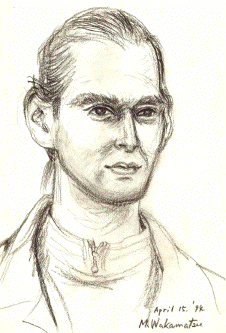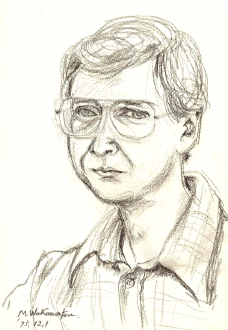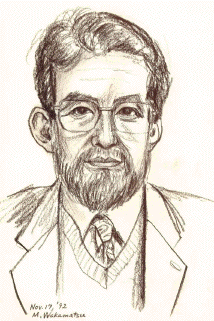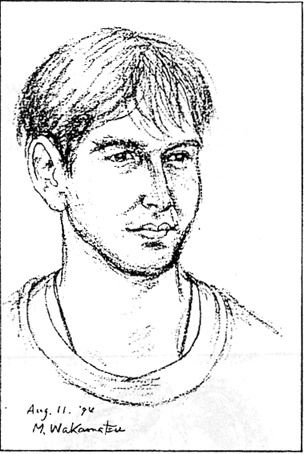Mr. F.F /
Mr. S.H / Mr. Y. H /
Mr. H.H / Mr.
M.A / Mr. S.F /
|
I have sketched more than two hundred friends from work in
lunch times. I often asked him or her to write an essay for
a booklet with portraits. Michio Wakamatsu |



